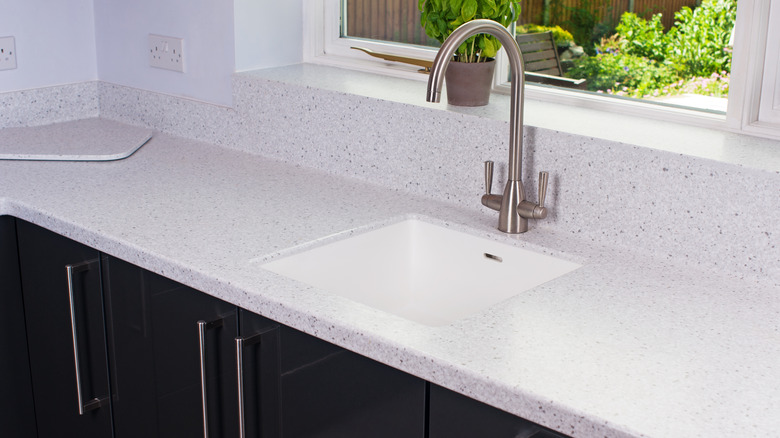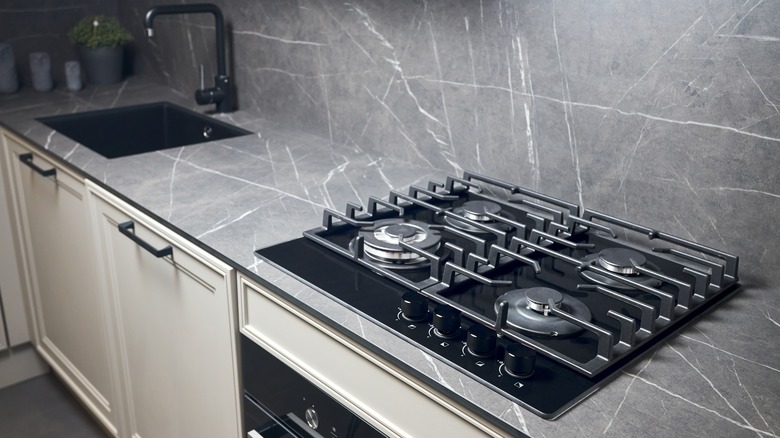How Long Should Laminate Countertops Last Before They Need To Be Replaced?
We may receive a commission on purchases made from links.
Since the peak of Formica countertops in the mid-20th century, laminate has been the material to go to for sturdy yet inexpensive options for kitchen remodels. Laminate is a product consisting of decorative papers and resins fused to particleboard, creating a structure durable enough to withstand most impact damage while requiring little maintenance. The overall effect mimics the look of pricier products without the expense. However, while laminate options are reasonably durable, they don't last as long as materials such as granite, marble, or quartz. The average laminate countertop has a lifespan of no more than 10-15 years, after which it will need to be replaced.
After the height of their popularity, laminate countertops were considered dated and somewhat kitschy, but there are still a number of reasons to favor them. Today, these countertop options offer a wide range of colors, patterns, designs, styles, and aesthetics for a fraction of the cost of solid surface and stone products that come in fewer color and style varieties. Moreover, laminate countertops are extremely friendly to those who enjoy DIY home improvement projects, being easy to remove and install on one's own. Cleaning is easy and only consists of regular wipe downs with mild soap and water. There are ways to extend the life of laminate countertops, but it's also important to know when to replace them.
When to replace your laminate countertops
Laminate countertops are resistant to impact damage, but heat and scratches can still mar the surface. It's important to always use barriers such as cutting boards and trivets when using knives or placing hot pans to protect your laminate as much as possible. Furthermore, prolonged exposure to water can cause your countertop to delaminate, separating the layers of the surface so that they warp or buckle and can't be pressed back together. If any of these scenarios affect your laminate countertop, you'll likely need to replace it earlier than its expected lifespan because, unlike stone or butcher block, laminate can't be sanded down as a repair.
Another reason you might want to replace your laminate countertops early is if you've decided on a partial kitchen or bathroom remodel and have the budget to include different countertops in that redesign. Even if your laminate still has a few years left in it, the replacement value of countertops is significant, and you'll have a better chance of selling your home down the line if your kitchen or bathroom is equipped with countertops in a material other than laminate. This could mean a big difference in selling price, so don't discount the possibility of replacing them in your home redesign.
Extend the life of your laminate countertop
The quality of laminate countertops has improved over the last century, so with proper care there's a chance you could extend the life of your high-quality laminate to 20 years. A gentle cleansing once a day with a soft cloth is efficient as long as spills are addressed right away. Also, make sure not to use abrasive soaps on the surface as they can scratch your laminate just as a knife or other sharp object.
In addition to daily maintenance, you should consider updating the seal on your laminate countertop as often as once a month. Sealing the countertop will help keep out water, which can permanently damage the laminate. Laminate repair kits are available for purchase in the event of small scratches and chips, but major gouges and delamination can't be helped, and you'll want to avoid anything that can cause that kind of damage.


